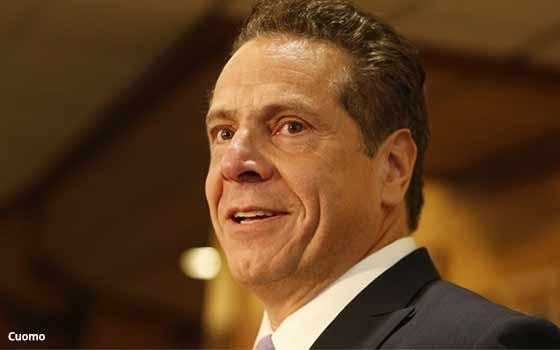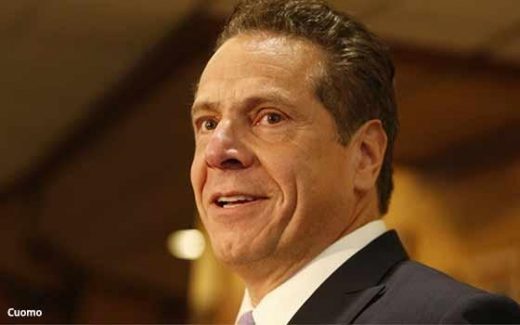New York Governor Vows To Introduce Net Neutrality Law
New York Governor Vows To Introduce Net Neutrality Law

New York may soon join four other states in prohibiting broadband carriers from violating the Obama-era net neutrality rules.
On Thursday, Governor Andrew Cuomo vowed to introduce legislation that would ban carriers from blocking or throttling traffic, and from charging higher fees for prioritized delivery. The potential bill would also prohibit broadband providers from engaging in “zero-rating,” which involves exempting some material from consumers’ data caps. The measure would also allow consumers to over violations.
“A free and open internet is one of the great equalizers — allowing every person the same access to information and helping protect freedom of speech,” Cuomo said in a statement.
He added that his proposal “will help ensure an open market for ideas and content across platforms and preserve the unimpeded access to online content the public wants and needs.”
In 2017, the Federal Communications Commission voted to repeal a set of net neutrality rules that had been passed two years earlier. Those rules also prohibited blocking, throttling, paid prioritization and some forms of zero-rating.
FCC Chairman Ajit Pai, who shepherded the repeal, says the Obama-era rules were “heavy handed” and depressed investment.
But net neutrality proponents say net neutrality rules are necessary to prevent carriers from restricting people’s ability to access video, social networks, search engines and other online services and content.
Since the FCC repealed the rules, lawmakers in California, Vermont, Maine and Washington have passed laws to restore the regulations on a statewide basis.
California’s broad law prohibits broadband providers operating in the state from blocking or throttling traffic, charging higher fees for fast-lane service, and from exempting their own video streams from consumers’ data caps. The Vermont law, which is narrower, prohibits broadband access providers that contract with state agencies from violating the Obama-era net neutrality rules. Laws in both of those states are on hold, due to challenges by the broadband industry.
Governors in several states, including New York, have also signed executive orders requiring broadband carriers to follow the Obama-era rules as a condition of contracting with state agencies.
The fate of these state initiatives is uncertain. When the FCC repealed the former rules, it also prohibited states from creating or enforcing their own version of net neutrality regulations.
A panel of the D.C. Circuit Court of Appeals recently vacated the part of the FCC’s order that blocked states from issuing their own rules. The judges wrote that the FCC “lacked the legal authority to categorically abolish all fifty states’ statutorily conferred authority to regulate intrastate communications.”
At the same time, the panel left open the possibility that the FCC could override state laws on a case-by-case basis.
That decision may not be the last word on the subject, given that the entire D.C. Circuit Court has been asked to hear the dispute. And even if that court declines to review the matter, the Supreme Court could still intervene.
Despite the possible legal challenges, advocates are cheering Cuomo’s plan.
Free Press Action vice president Matt Wood called the proposal “welcome news for everyone who knows they can’t trust greedy cable and phone company executives to keep the internet as open as it’s always been.
Phillip Berenbroick, policy director of Public Knowledge, added: “With the FCC missing in action, it is critical that state governments step up to protect consumers and ensure the internet remains free and open.”
(42)


